Your ultimate guide to the Ward 2 Laramie City Council race
The candidates disagree about how to encourage affordable housing and whether to strengthen rental regulations but they find common ground on matters surrounding inclusivity and climate change.
With a majority of Laramie City Council seats on the ballot in 2024, voters living within city limits will decide their municipal representation across this year’s Primary and General Elections.
In Ward 2, six candidates are vying for two available seats. Once Primary Election ballots are tallied, the two least popular candidates will be eliminated, while the four candidates with the highest vote counts will move on to the General Election for a final decision by the voters.
This year’s six candidates include two incumbents running to keep their long-held seats, as well as four challengers seeking their first chance to represent Ward 2.
Brett Glass, a local landlord and internet service provider. Glass has run for city council twice before, in 2020 and 2022, and has served on city boards. He strongly opposes the city’s Rental Housing Code, having advocated against its original passage and having testified to lawmakers in favor of a bill that would reverse it. He says he’s running to “give back” to a community he’s been a part of for 32 years. “As Laramie grows and state funding is cut, Laramie's city government will need to ‘stick to its knitting,’ focusing on its core functions and essential public services,” he writes. “It needs to concentrate on the preservation of public health, safety, and welfare.”
Brett Kahler, executive director of the Wyoming Economic Development Association. A 2014 University of Wyoming graduate, Kahler worked as a development officer for both the Ivinson Memorial Hospital Foundation and the UW Foundation before joining WEDA. He has not run for city council previously, but does serve on the city’s Parks, Tree, and Recreation Advisory Board. He says he is running to bolster community engagement and economic development, as well as to maintain strong relationships with the county and university. “Laramie is a great place to live and work, but I believe it can only become better through thoughtful engagement from its residents,” he writes.
Jayne Pearce, a current city councilor first elected in 2012. She ran in the 2016 Democratic primary for Albany County Commission but lost, which allowed her to then stand for reelection as a city councilor in that year’s General Election, which she won. In 2020, Pearce ran and won again, receiving 29% of the vote in the Ward 2 race, more than any of her three opponents that year. Pearce is a program manager with UW’s Office of Online and Continuing Education, a position she has held for more than two decades. She says she is running for a fourth term “to continue the good work serving Laramie citizens by streamlining services, solving problems and creating impactful policy.” Specifically, Pearce aims to continue work on affordable housing and public transit.
Melanie Vigil, an assistant dean of students at UW. Vigil graduated from the university in 2017 with a master’s in public administration. She has served as the education and outreach coordinator for the Wyoming ACLU and as a board member for Wyoming Equality and the Eppson Center. Vigil is running on a platform that stresses the fight for safe and affordable housing as well as the preservation of natural resources. “I’m running for city council because I care deeply about my community at the granular level,” she writes. “Conservation and water protection, as well as supporting our local businesses and keeping young people in Laramie are at the forefront of my campaign.”
Jim Fried, a conservationist currently working as the Medicine Bow-Routt Coordinator for the National Forest Foundation. Formerly, he was a Wyoming Conservation Corps program director. His campaign focuses heavily on aquifer protection and other conservation goals, as well as renter protections, affordable housing development and public transit. He is running alongside Vigil in something of a joint campaign that involves canvassing together and advancing similar platforms. Vigil and Fried have appeared together on at least two mailers paid for by the Albany County Tomorrow PAC — on one of those mailers, appearing alongside allied Ward 1 candidates Sharon Cumbie and William Bowling.
Andi Summerville, a current city councilor and the executive director of the Wyoming Association of Mental Health and Substance Abuse Centers. Summerville won her first election in 2014, and served as mayor starting in 2017. The following year, she lost her reelection bid to Jessica Stalder, receiving about 40% of the vote to Stalder’s 45%. In 2020, Summerville ran again and won, rejoining the council as a representative of Ward 1. Redistricting shifted the city’s political lines such that Summerville is now a Ward 2 resident. In the same neighborhood, but now in a different ward, Summerville is pursuing her third term on the council. Summerville almost exclusively attends council meetings virtually. The Reporter was unable to interview her.
How city council elections work
City council elections are non-partisan. That means candidates do not run as Republicans or Democrats. They might be registered with a party and might even be highly involved with a party organization, but their partisan affiliation does not appear with their name on the ballot and the primary election does not identify partisan nominees.
Instead, the primary election is used to whittle each race down to twice as many candidates as there are available seats.
Across the city’s three council wards, five total seats are up for grabs and 14 total candidates have filed to run. The primary will whittle that field down to 10 candidates and the General Election will decide which five candidates go on to represent city residents for the next four years.
In Ward 2, the primary will whittle the field of six candidates to four.
Candidates agree on inclusivity efforts, policing and climate goals
All but one of this year’s Ward 2 candidates completed a 10-question questionnaire from the Laramie Reporter. On many topics, there was broad agreement.
LGBTQ+ issues
Across the board, Ward 2 candidates are supportive of LGBTQ+ rights and the city’s efforts to make local government more inclusive. The two incumbents — Pearce and Summerville — voted to approve the nondiscrimination ordinance in 2015, which Pearce calls “an amazing accomplishment.”
That accomplishment propelled Laramie to its current status as the state’s most inclusive city government.
Vigil, as a private citizen, was involved in the push for that ordinance as well.
“As a member of the LGBTQ community, I was proud to work with our city council back in 2015 to pass the non-discrimination ordinance,” she writes. “Laramie’s inclusivity towards LGBTQ people is a bright light in the state of Wyoming.”
Her co-campaigner, Fried, agrees.
“I fully support the initiatives put forth by the city, and would like to see more,” he writes. “If the city can provide safety and ordinances that protect people, then we don’t have to rely on the county or the state or the federal government, because we’re doing it here.”
Similarly, Kahler writes he would support “any effort” by the city to make Laramie more welcoming or supportive of its LGBTQ+ community. Glass adds the city should actively fight ongoing efforts by the state to roll back LGBTQ+ rights and privacy.
“The City has already done quite well at combating discrimination of all sorts,” he writes. “The main area in which it can do more is in resisting efforts by the state Legislature to drive things in the other direction.”
Policing
As with Ward 1’s candidates, Ward 2’s candidates largely refrain from staking out any forceful positions when it comes to police accountability. No candidate in Ward 2 is calling for the establishment of a civilian oversight board, and most say it’s “too early to tell” whether the citizen advisory board has been successful.
“I feel that this advisory board is still in its infancy,” Vigil said. “I’d like to give the folks on the board more time to work in order to determine its effectiveness.”
After the shooting of Robbie Ramirez in 2018 and the George Floyd protests of 2020, the Laramie City Council debated the formation of a civilian oversight board — an appointed body meant to serve as a check on police activity. Ultimately, the council voted not to adopt such a board, but — seizing on another idea that grew out of that debate — did approve the formation of a citizen advisory board. The advisory board has no oversight powers, nor any formal power over the Laramie Police Department. It serves as a sounding board for police department proposals and ideally as a vehicle for community education.
Both Summerville and Pearce voted against the oversight board.
“The formation of a civilian oversight board is impossible based on current Wyoming statute. A fact that is repeatedly overlooked and forgotten!” Pearce writes, echoing the opinion of the city attorney. “This is a discussion for the legislature, not the city. If legislation changes, then a local discussion becomes an option.”
Kahler explicitly places himself in the center.
“There are some who think that police departments should be defunded, and some who think police should not have any requirements on their policies; neither is helpful to encouraging a safe, healthy relationship between police departments and citizens.”

Climate goals
While other races on this year’s ballot feature candidates who downplay the science of climate change, Ward 2’s city council candidates agree not only that climate change is real but that taking action on climate change must be a priority for the city of Laramie.
Pearce says she “absolutely” supports the climate goals she has helped to set at the city level.
“Achieving net zero by 2050 is going to be challenging but not impossible,” she said. “Future councils should continue with this goal, require regular achievement updates and be flexible as technology changes.”
The other candidates agree. Kahler and Glass both argue the city should push its community partners, such as the county and university, to do more.
Similarly, Fried and Vigil say climate action will require both keeping up with technological advances, “bringing folks together” and working with “even unlikely partners.”
“I was proud to be from Laramie when the city set the midcentury carbon neutrality goal,” Vigil writes. “I would be excited to dive into these issues, working with our County Commission to find common sense solutions moving forward.”
Candidates disagree on affordable housing, rental protections and parking
Housing and other top priorities
While the Ward 2 candidates agree on a lot, they differ on what they believe should be front and center.
For Pearce, the top issue facing the city is that of housing, “to include all types: rental, low-income, affordable, workforce, single and multi-family” with special emphasis on workforce housing.
During Pearce’s tenure, the council has taken on a number of housing reforms. Some of these made appeals to safety — such as adding general contractor licensing and rental habitability regulations to city code. Pearce supported both of these pushes. As did Summerville.
Other reforms have taken aim at the city code and made alterations designed to enable or encourage more affordable housing development. Among these reforms were an ordinance allowing denser housing in multi-family zones, another allowing accessory dwelling units in single-family zones, and yet another scaling back parking requirements which city staff argued were disincentivizing the construction of denser, cheaper housing.
Pearce voted for some of those changes, but voted against both the multi-family ordinance and the parking-related ordinance. Summerville, on the other hand, voted in favor of all.
Pearce says the city should pursue more public-private partnerships and should continue “local discussion” about setbacks, lot sizes and the other factors addressed by the multi-family ordinance she opposed.
For Vigil and Fried, housing is also front and center, but defending or improving the city’s rental regulations sits alongside the need to encourage housing development.
“I’ve been a renter in Laramie for almost 15 years,” Vigil writes. “I work daily with young adults who rent, and should I be elected I would do my best to maintain and strengthen our current ordinance.”
Vigil is also an advocate for the West Side neighborhood.
Achieving a historic overlay for the West Side, or in some other way defending its historic character, has long been the goal of advocates within and outside of the neighborhood. But there’s a tension between that push and the push for affordable housing. Some, but not all, advocates for the West Side opposed the ordinance allowing denser housing in multi-family zones. Vigil has not voiced an opinion on that specific ordinance.
“I believe that while we discuss affordable housing, we should also be pushing to maintain historic neighborhoods such as Laramie’s West Side,” Vigil writes. “My family grew up there (some still live there today), and preserving the history and character of that neighborhood would be a priority for me.”
The remaining candidates did not list housing or rental regulations as the No. 1 priority, but did highlight broader concepts touching on all facets of city governance and life, including housing.
For Kahler, economic development is the chief concern, though he says that topic really represents many issues.
“Those issues include basic things that keep people in Laramie, such as housing, childcare, and jobs, and also attract new residents to our community,” Kahler writes, adding that — like Pearce — he would like to see more public-private partnerships. “I believe that the city can work together to form strong private-public partnerships that help address these challenges and, as a result, make Laramie an even more attractive place to live.”
Glass says his primary focus is reducing city bureaucracy — another issue that touches housing.
“It is the root cause of all other problems about which citizens have expressed concern, including housing cost and quality, parking, roads and streets, retail diversity, and the cost of living in general,” Glass writes. “Laramie's government has become topheavy, bloated, and unresponsive to the people.”
Glass has vocally opposed several affordable housing measures as a private citizen.
As the city council debated the aforementioned ordinance allowing denser housing in multi-family zones, Glass provided public comment.
“This ordinance would not do anything positive for the neighborhoods it affects,” he said. “Instead, it would cram highly urbanized ultra-dense housing into zones which typically have single-family or two-family housing.”
Glass would also repeal the 2021 ordinance instituting general contractor licensing in Laramie, which he says hinders rental maintenance.
Summerville did not complete the Reporter’s questionnaire and did not take part in a League of Women Voters forum (though she did answer a few questions for Vote411.org). Her top priority this campaign cycle is therefore unclear, but her track record as a councilor shows she has consistently supported affordable housing and rental safety measures.
“I think it’s important, as we look at this conversation about affordable housing, we’re putting as many tools in the toolbox as possible,” Summerville said during the third reading of the multi-family zoning ordinance. “This is not meant to be a fix-all solution. I think we have a lot more work to do.”
Strengthening (or killing) rental regulations
In the city council’s second ward, every candidate except Glass supports the City Rental Housing Code. Most candidates hope to strengthen it.
The rental housing code establishes a set of habitability standards for rentals within city limits. Those standards mandate that rentals be structurally sound, weatherproofed and free of pests and mold. Major heating, plumbing and electrical work must be performed by licensed professionals. And each unit must be outfitted with fire escape windows and, for those with potential carbon monoxide sources, carbon monoxide detectors.
The code also requires landlords to register their units and it establishes a complaint system through which tenants can bring claims against their landlords for failing to meet the code’s requirements.
Glass is perhaps the rental housing code’s most vocal and most active opponent. He objected to its passage as the original ordinance worked its way through three readings and a public hearing. He has also railed against the code in both the press and legislative hearings.

Glass argues the code “isn’t working.”
“Landlords have taken properties off the market rather than deal with city bureaucracy, worsening our housing crunch,” Glass writes. “Tenants' situations have not improved. City fees have drained more than $158,000 from renters' pockets.”
Glass has told lawmakers that the registration fee now required of landlords has been passed onto tenants. Others, including other Laramie landlords, have pushed back on this notion, saying it’s ridiculous to raise rents for a fee that amounts to $1.67 per unit per month.
Nevertheless, some landlords and property management companies have justified rent hikes of up to $80 a month, in part, by pointing to the fee.
Glass says tenants are already guaranteed safe living spaces by Wyoming law, which makes the local rental code unnecessary.
“Wyoming cities cannot legally handle the most common rental issues: rental contract disputes, deposits, and evictions,” he writes. “State law already explicitly requires rentals to be habitable, sanitary, and safe … Experienced no-nonsense judges can serve renters everywhere, not just within city limits. This would be better and fairer for everyone.”
Others have countered there is a power imbalance between landlords and tenants which leaves the latter at a structural disadvantage when the two parties meet in a courtroom.
Glass’ five opponents see different issues with the rental housing code.
For example, a majority of Laramie’s landlords have yet to comply with the law. Despite having been required to register their rentals 18 months ago, thousands of units across the city remain unregistered.
So the Laramie City Council has started to discuss upping its enforcement of this mandatory registration. And this year’s Ward 2 candidates, sans Glass, are eager to join that conversation.
“I think there’s two ways to look at that,” Fried writes. “You could either incentivize these landlords that are not registering themselves, or there needs to be — on the other end of the spectrum — fines for landlords that are refusing to do that. Because ultimately the city is taking a step to ensure safety for folks, and it’s not a big ask.”
Vigil, Fried’s co-campaigner, wants to strengthen the current rental regulations.
“With the legislature’s eyes on our rental ordinance, I want to fight to maintain basic, common sense protections for the 54% of us who rent in Laramie,” she writes. “I believe everyone deserves a safe home with basic heating, a fire extinguisher, and carbon monoxide monitor. These basic amenities only make sense, and if we are to keep young people here, our rental units need to reflect a basic standard of living.”
Kahler and Pearce have spoken to the importance of defending the code, working to make it more effective and getting more landlords registered. They both endorsed the idea of offering an official seal for registered landlords — an indicator renters could look for as they decide whether to sign a new lease.
“I think it would be beneficial if renters were aware of the regulations,” Kahler writes. “If renters knew if the places they are looking at for rent have registered with the city or not, they could make more informed decisions about the options they are considering. Having something as simple as a seal of registration that can be displayed or an addendum added to rental agreements might provide incentive for more landlords to register their units.”
Like her fellow incumbent Pearce, Summerville voted to adopt the rental housing code. In a statement published to Vote411.org, the councilor advocated for local control of rental regulations.
“The Laramie City Council took a long time to pass a rental ordinance, about seven years, and the Council should continue to review it — ensuring that it is effective and make changes as necessary,” Summerville writes. “The government closest to the people should be the most reflective of the community and the most flexible, not everything requires a state solution.”
Downtown parking
The most contentious city council meetings of the last year involved parking.
When city staff brought a downtown housing proposal to the council for an early first look, dozens of business owners from nearby shops mobilized to kill the proposal before it could even officially get on the table.
The six-story apartment complex would have been built over — and would have replaced — a popular downtown parking lot, eliminating nearly 80 spots. Despite arguments from the Main Street Alliance showing business might actually improve with the presence of live-in customers, the owners argued that such a radical reduction of the available downtown parking would harm their businesses and make it difficult for customers or employees to find spots.
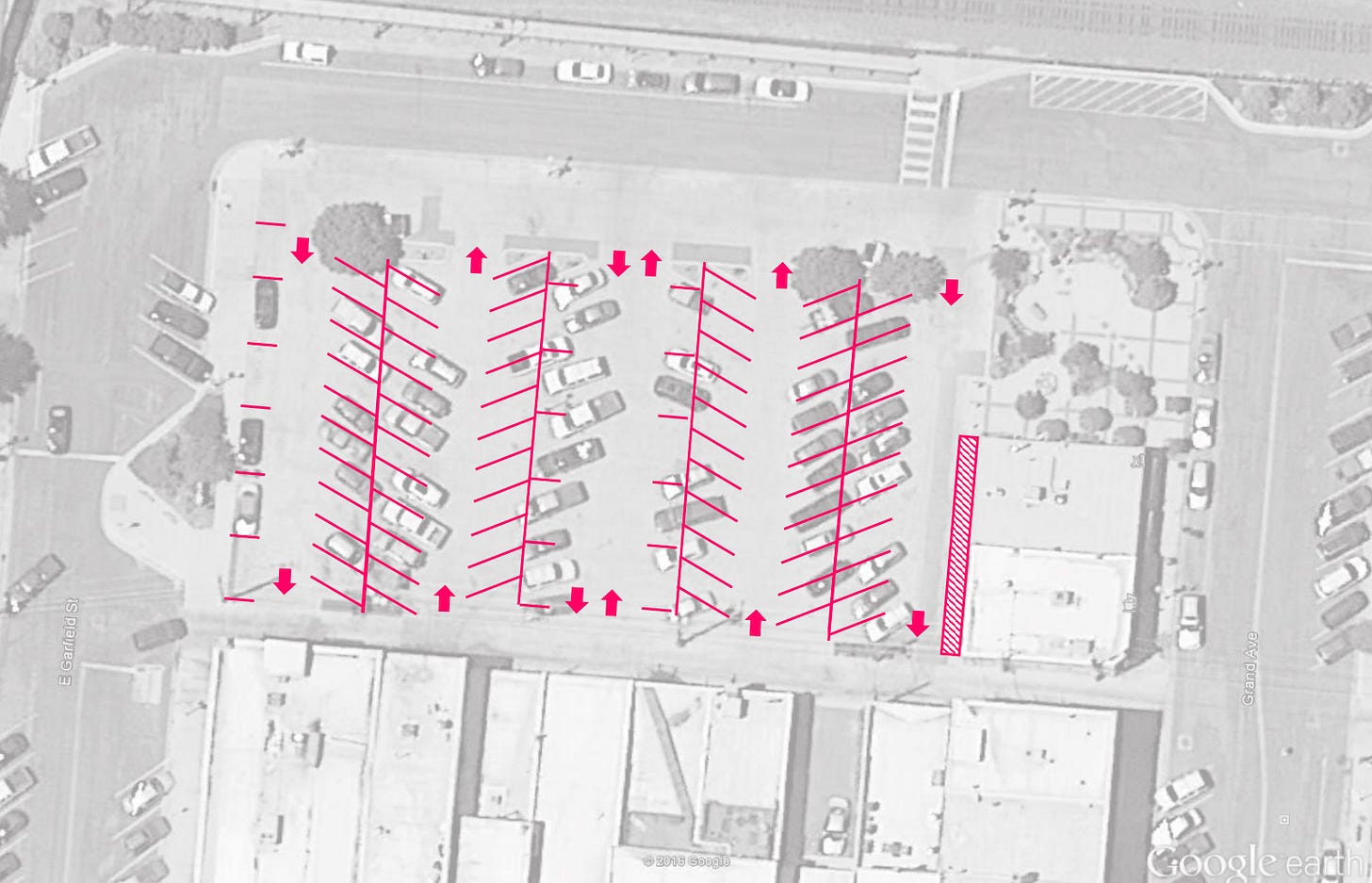
The council ultimately listened to these concerns and rejected the proposal, opting to maintain the agreement that keeps the privately-owned parking lot mostly public.
The proposal was the talk of the town for at least a week and it demonstrated the tension between parking, accessibility and other community goals related to economic development, housing, health and climate.
Candidate perspectives on parking varied greatly. Glass offered the fiercest criticism of sacrificing parking in the name of other goals.
“I have watched the City eliminate parking for every possible reason: seldom-used downtown ‘parklets;’ the convenience of the University administration (which garners huge profits from permits); extended ‘yellow zones’ which do not improve safety because buildings block the view. It seems always to destroy parking, never providing more,” Glass writes. “Preserving and increasing parking should be a priority.”
Pearce wants to address parking enforcement downtown, responding to a common complaint that two-hour spots are, in effect, much-longer-than-two-hour spots given how difficult it is to remove violators. She also says personal patterns need to change.
“During recent council meetings related to downtown parking it became apparent that some residents, business owners, and employees have magnified the problem by not parking a few blocks away to provide space for customers,” Pearce writes. “Once downtown is united in parking practices, a needs assessment should follow.”
Kahler says he’d like to see all ideas on the table, such as greater enforcement or even a parking garage, but he ultimately added that current availability is “adequate.”
“As long as handicapped spaces are protected in downtown Laramie, the parking that exists through the free lots and off-street parking is adequate,” Kahler writes.
Vigil did not take a strong stance for or against the creation of new parking, but raised similar considerations.
“I look at parking through an accessibility lens and believe it’s critical that we have adequate parking for those who are disabled, the elderly, and for everyone else during our brutal winters,” Vigil writes. “Adequate parking also means easier access to our favorite shops downtown. I think we can be creative and come up with solutions that won’t take away the parking we need, but service other priorities such as housing.”
Fried, meanwhile, acknowledged the tension between parking, climate goals and housing. He said public transit, another pillar of his platform, could alleviate some of the concerns around parking, allowing the city to pursue other community goals without hurting downtown businesses.
“I think we can leverage resources and be creative in how we make sure that stores are still getting visibility and they’re still getting traffic,” Fried writes. “But I do think creative solutions exist for maybe turning certain parking lots or parking areas into more user-friendly things for the city.”
The candidates’ complete answers to the Reporter’s questionnaire will be published later today.




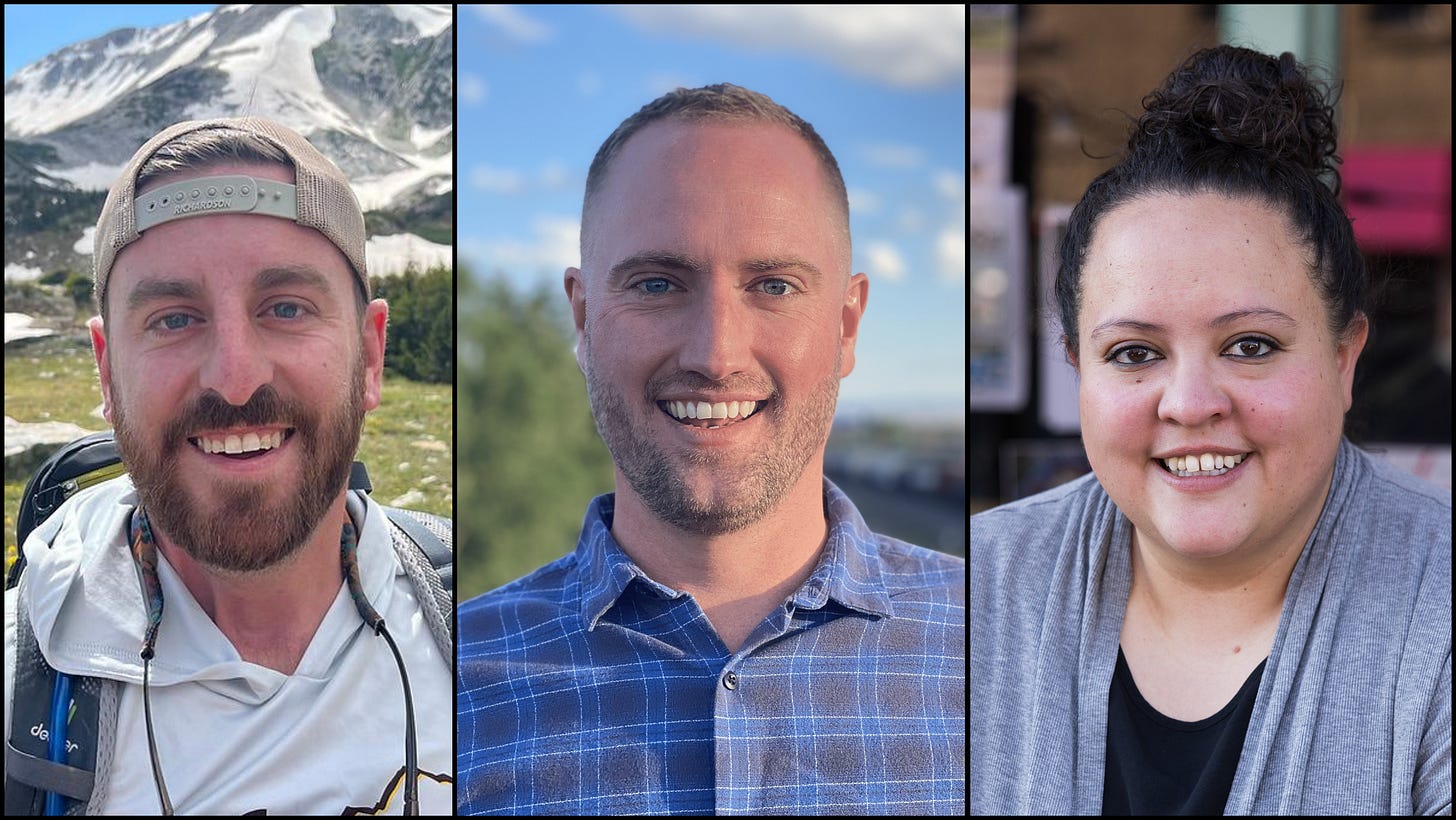
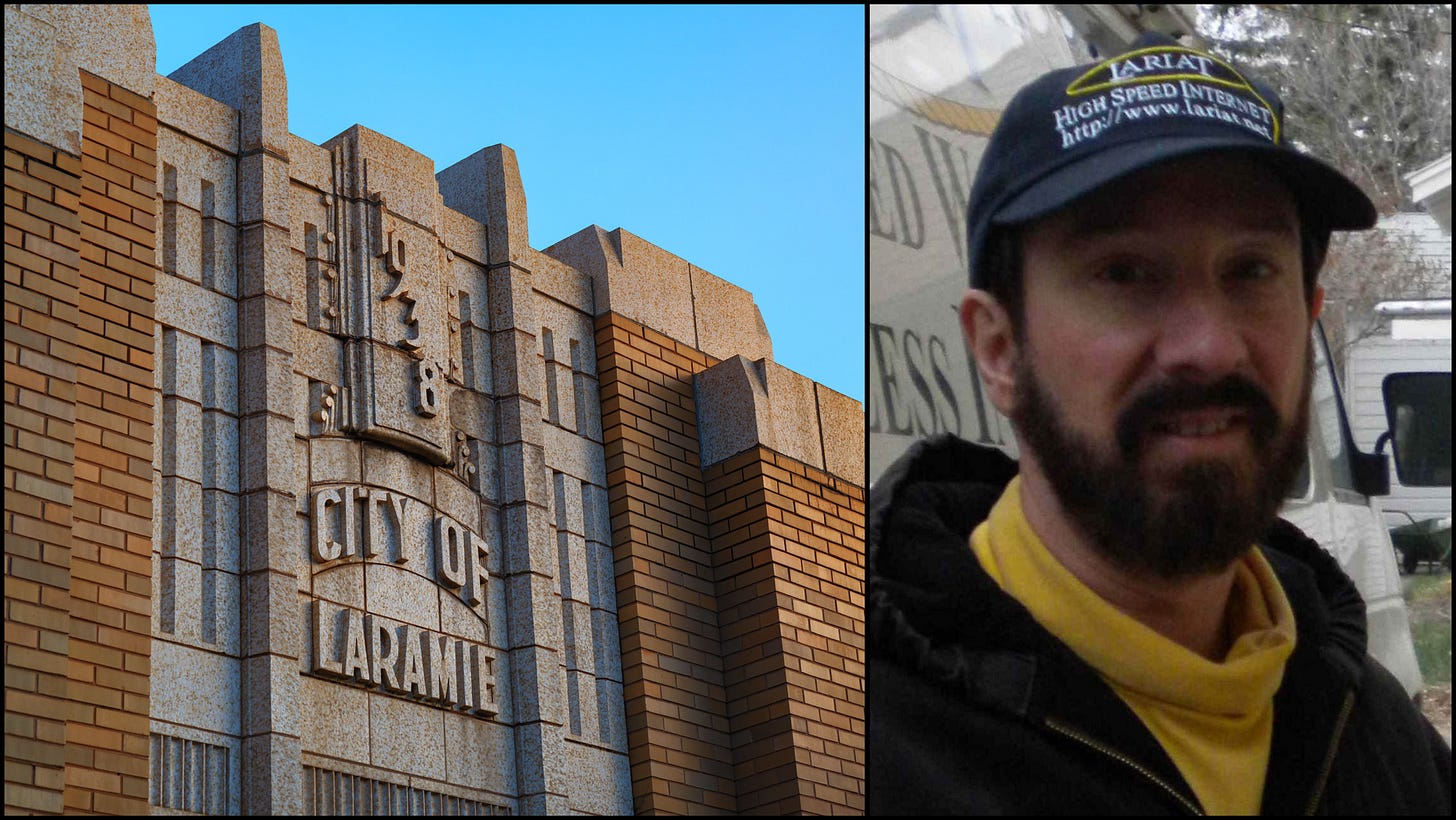




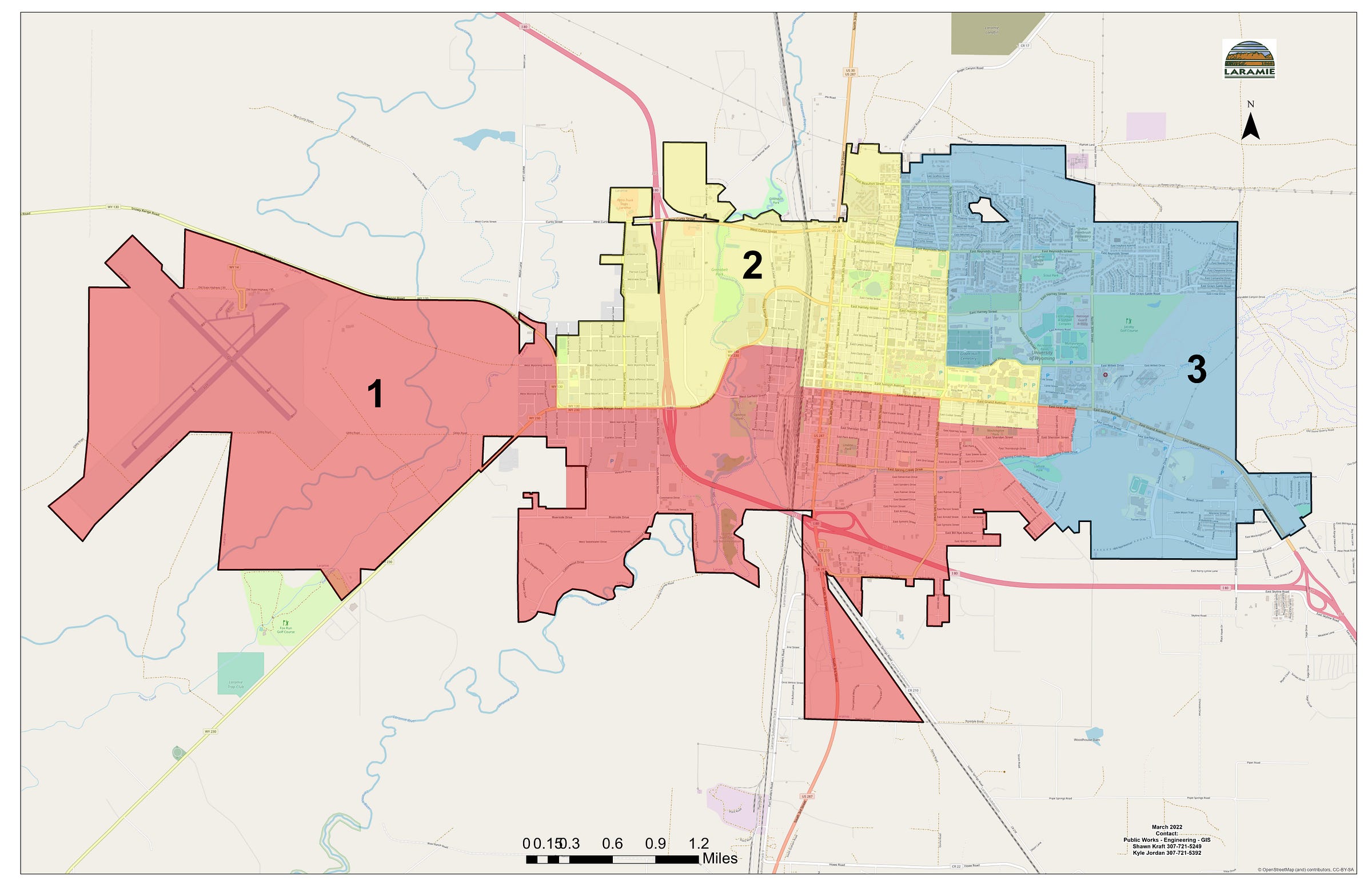
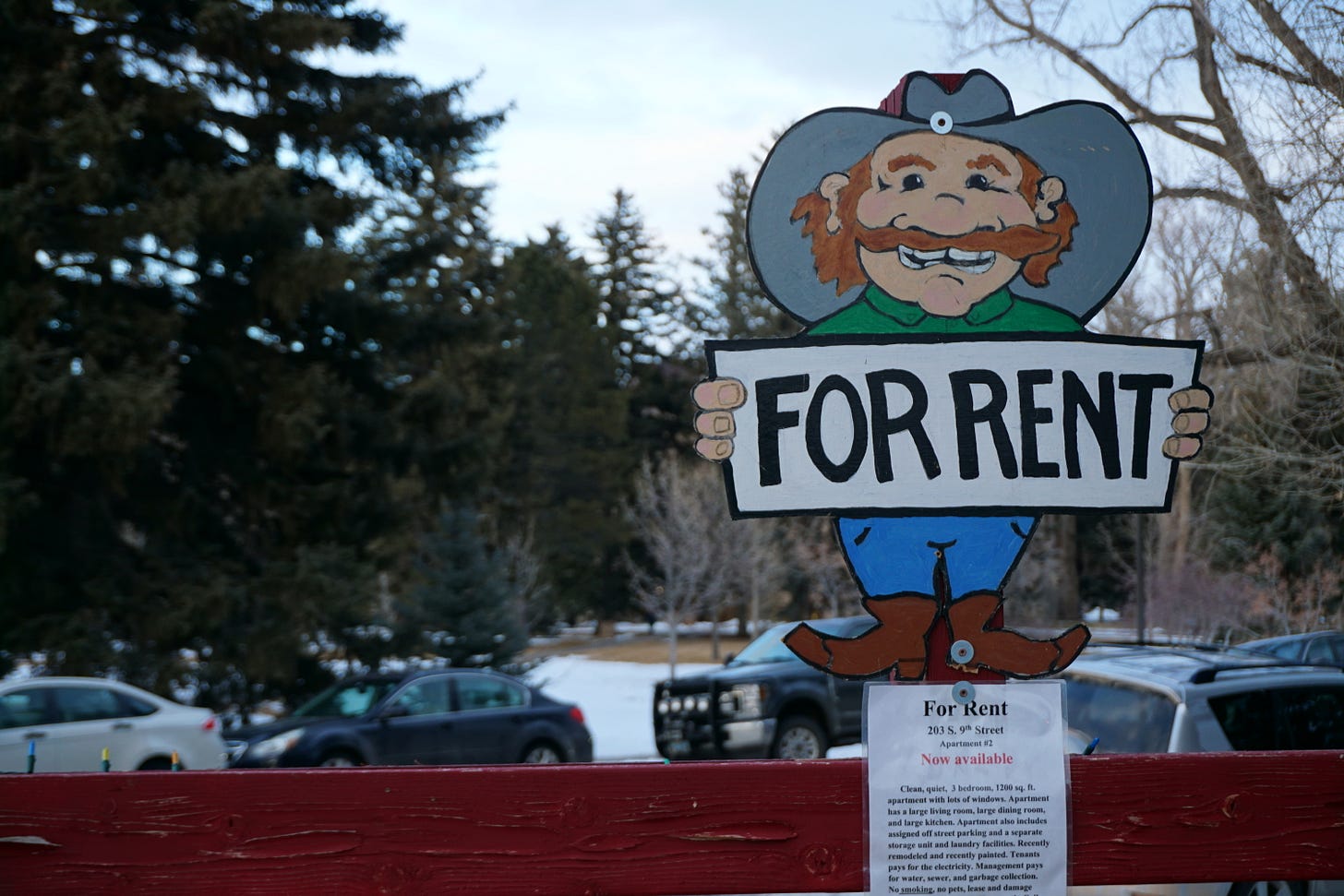
glad to see so much more worthwhile competition than last election for my vote against Brett Glass!
Thank you Jeff for the expert reporting. It's always helpful when going to the polls. I hope Melanie wins this round! If we're lucky maybe Glass will learn that no-one in town looks at him with respect.